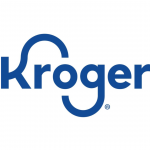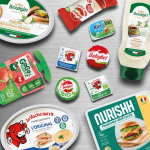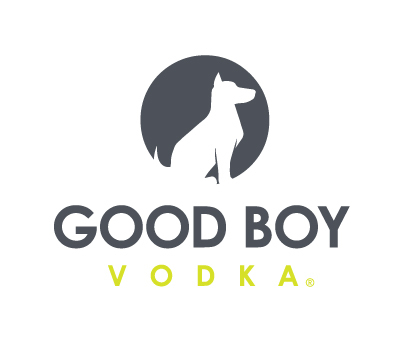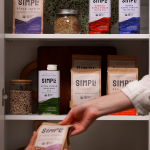The Checkout: FreshDirect Acquired; Farmstead Raises $7.9M
Welcome to The Checkout: an express lane for weekly news you need to know, always 10 items or less.
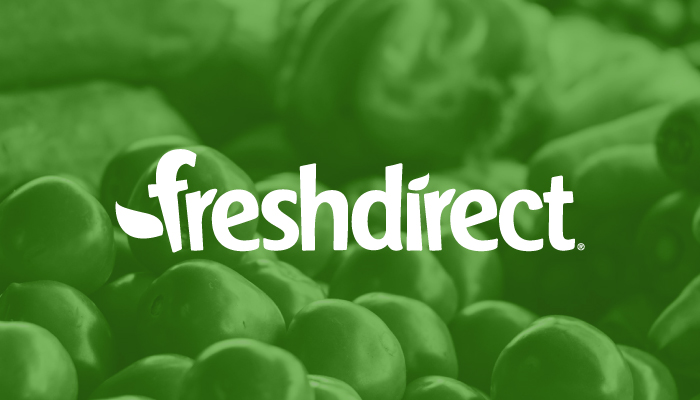
Ahold Delhaize and Centerbridge Partners Acquire FreshDirect
Netherlands-based grocery company Ahold Delhaize and private equity firm Centerbridge Partners this week announced their agreement to acquire online grocer FreshDirect. Ahold Delhaize, owner of U.S.-based chains such as Stop & Shop and Giant, will acquire the majority share of the company while Centerbridge Partners will take a 20% stake. Terms of the deal were not disclosed.
New York City-based FreshDirect will keep its brand name and continue to operate independently out of its 400,000 square foot Bronx facility, and will now report to a seven-person board as part of the deal.
In a press release, Ahold Delhaize CEO Frans Muller said the deal will accelerate the company’s omnichannel growth and enable it to “address customers’ growing preference for convenient ways to shop.” Launched in 2002, FreshDirect delivers directly to customers across seven states, including the New York City, Philadelphia and Washington, D.C. metro areas. FreshDirect forms exclusive relationships with local farmers for its fresh food supply, which comprises 60% of its sales.
“We are strong believers that the future of grocery retail involves getting customers the best quality food, exactly when they want it, with the best customer service,” FreshDirect CEO David McInerney said in a press release. “We have built FreshDirect into a reliable and recognizable business to serve this purpose. This transaction marks an important milestone in the continued growth of FreshDirect. I believe Ahold Delhaize’s global scale, focus on strong, leading local brands, and ability to utilize cost-of-goods synergies, will allow FreshDirect to achieve its full potential.”
Like many online grocers, FreshDirect experienced increased demand amid the pandemic. While it already offered same-day and rush delivery, this summer the company launched FreshDirect Express, enabling two-hour delivery in the New York City and Washington, D.C. metro areas. The company also expanded its delivery capacity to New York’s Westchester County and Long Island along with New Jersey and Connecticut in August.
Ahold Delhaize is also the owner of online grocery delivery service Peapod. In February, Ahold closed the platform’s Midwest division, shifting its focus to establishing an omnichannel presence for its East Coast retailers through its ecommerce engine Peapod Digital Labs.
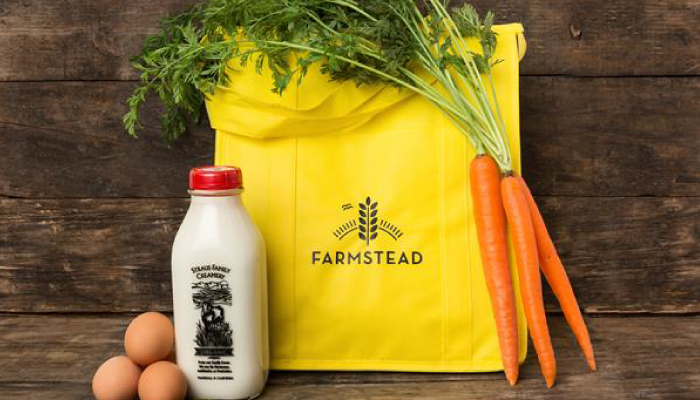
Farmstead Raises $7.9M to Continue East Coast Expansion
Online grocer Farmstead announced this week the close of a $7.9 million Series A funding round as the San Francisco-based company continues its expansion to the East Coast, announcing this week its plans to launch in Raleigh-Durham, North Carolina next year. The round was led by Aidenlair Capital and brings the company’s total funding to $14.5 million.
Launched in 2017, Farmstead uses proprietary AI technology and a dark store model. Its delivery centers can each serve a 50-mile radius, delivering thousands of grocery orders per day efficiently and at prices comparable to or cheaper than most retailers. The company expanded to Charlotte, North Carolina this month and will debut in Raleigh-Durham early next year. In September, the company also made its grocery delivery software Grocery OS available to other grocers, allowing them to boost delivery capacity, managing picking, packing and operations with the goal to “combat Amazon’s national threat.”
“In order to fix grocery delivery and make it profitable, Farmstead took the bold approach of breaking the traditional model and starting completely from scratch, while opening up Grocery OS to other retailers,” Tim Reynders of Aidenlair Capital said in a press release. “There is an inevitable path to growing an impactful and powerful company, and we see that potential with Farmstead – we’re excited to work with Pradeep, Kevin and team to grow the company nationwide.”
Co-founder and CEO Pradeep Elankumaran said in a press release that the company is now “laser focused on expanding Farmstead’s national brand,” and forming additional partnerships with grocers through Grocery OS. According to a LinkedIn post by Elankumaran, the company plans to launch hubs in additional markets “all across the country,” which he said cost about $100,000 to launch and reach profitability in months, with the ultimate goal to eradicate food deserts.
“This industry has been stagnant for long enough – customers demand change and we are building the foundation for sustained e-commerce growth in grocery while exceeding their expectations,” he said.
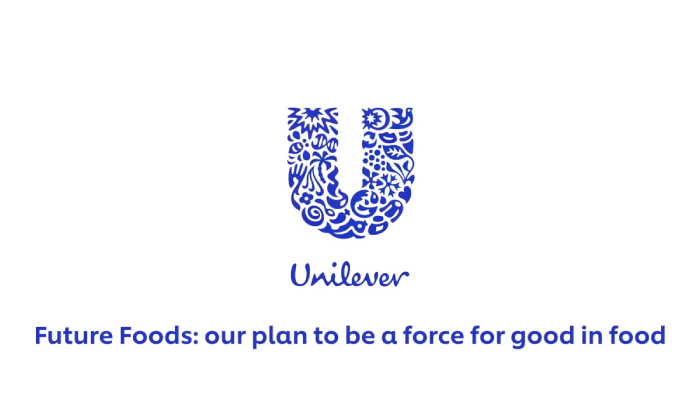
Unilever Launches “Future Foods” Initiative, Makes Push for Plant-Based Products
With the goal of helping to create “a global food system that is fair to everyone,” through healthier diets and reducing environmental impact, food manufacturer Unilever announced its new “Future Foods” initiative this week.
The initiative includes several commitments from the company, including a plan to target $1.2 billion in plant-based meat and dairy alternative sales within five to seven years, halve its food waste and double products offering “impactful amounts” of vegetables, fruits protein and micronutrients by 2025. It also aims to lower calories, salt and sugar across its portfolio. To do this, products across its portfolio will be reformulated to ensure that 85% of have less than five grams of salt per serving by 2022, and 95% of its ice cream offerings contain no more than 22 grams of sugar by 2025.
The company said the push for plant-based protein, rather than animal agriculture, will ultimately reduce its environmental footprint. New environmental commitments from the company also include plans to establish a deforestation-free supply chain by 2023; cut its virgin plastic use in half by 2025; and reach net-zero greenhouse gas emissions by 2039.
Unilever aims to make new plant-based products more accessible, and said customers can expect to see a wider range of vegan innovations from its portfolio of brands in the near future. Recent examples of Unilever’s vegan products include meat alternative brand The Vegetarian Butcher, which the company acquired two years ago, along with Hellmann’s vegan mayonnaise and Ben & Jerry’s seven-SKU line of non-dairy alternatives. The company also said biotech startup Algenuity is currently working with Unilever’s Foods and Refreshment R&D team at the company’s Netherlands innovation center, The Hive, to develop foods made with microalgae.
“It’s not up to us to decide for people what they want to eat, but it is up to us to make healthier and plant-based options accessible to all,” Hanneke Faber, president of Unilever’s Foods & Refreshment Division, said in a statement.

Vital Proteins Names Jennifer Aniston Chief Creative Officer
Collagen brand Vital Proteins announced this week a new partnership with actress Jennifer Aniston, who will join the team as its Chief Creative Officer and “[put] her spin on new product innovations and overall brand strategy,” according to a press release.
The company will be launching a new marketing campaign starring Aniston in December which will take a look at how Aniston incorporates Vital Proteins products including Collagen Peptides and Collagen Creamer into her day-to-day life. The campaign will premiere across television, digital streaming and social media.
“We’re really excited to welcome Jen and her valued perspective to the Vital team,” Vital Proteins founder and CEO Kurt Seidensticker said in a press release. “We’ve all watched Jen live a life that prioritizes wellness from the inside-out, which she attributes in part to her belief in Vital Proteins, making this partnership so unique and, more importantly, authentic. We are teaming up together to inspire the world to live healthy, and more vibrant lives.”
Aniston was previously the celebrity face of Smartwater, while Vital Proteins’ past celebrity partnerships include a collaboration with Kourtney Kardashian’s lifestyle brand Poosh last year. Founded in 2013, Vital Proteins was acquired by Nestlé Health Science in June.
Explore the Nombase CPG Database
Head to Nombase to learn more about the tagged companies and their offerings.



